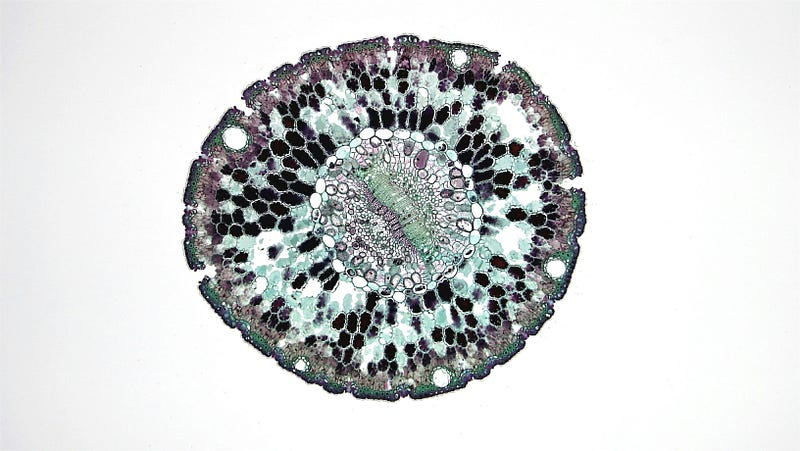Does Science Really Disprove God? An Inquiry into Life's Origins
Written on
Chapter 1: The Intersection of Science and Faith
Current societal beliefs suggest that advancements in science have undermined the existence of God. However, many, including Stephen C. Meyer, contest this notion. During his recent discussion on the Piers Morgan Uncensored YouTube Show, Meyer articulated his perspective that scientific discoveries can actually point us toward a divine creator.
As Meyer explains, the exploration of life's origins is crucial in this debate.
Section 1.1: The Scientific Community's Dissent
In 2016, a significant conference convened by the Royal Society brought together a group of evolutionary biologists who expressed dissatisfaction with the conventional Neo-Darwinian framework. Many of these scientists are advocating for a fresh theoretical approach.
The opening address was delivered by Gerd B. Müller, a prominent Austrian evolutionary biologist. He outlined five critical gaps in Neo-Darwinism, largely regarding the inadequacy of natural selection as a mechanism for generating the vast diversity of life forms.
Subsection 1.1.1: Five Key Shortcomings of Neo-Darwinism

- Phenotypic Complexity: Questions about how visible traits in organisms arise.
- Genetics: Mutations primarily harm rather than enhance complexity.
- Biochemistry: Random processes are insufficient for creating cellular intricacies.
- Paleontology: The fossil record is devoid of transitional forms.
- Chemistry: The origins of life at a chemical level remain elusive.
Meyer argues that while Darwin's theory includes elements of truth regarding small-scale variations and natural selection, it fundamentally falls short in explaining larger biological phenomena.
Section 1.2: The Challenges of Evolutionary Theory
The principal challenge lies in explaining how life emerged from simpler non-living substances. The prevailing Chemical Evolutionary Theory is largely at a standstill; even Richard Dawkins has conceded the absence of a comprehensive chemical theory that elucidates life's origin.
Many may not realize that Darwin himself did not provide an explanation for the emergence of the first life forms. Instead, he presumed the existence of simple organisms, which modern science has shown to be anything but simple, and proposed a mechanism for generating the diversity of life.
Chapter 2: Major Innovations in Evolution
Even the evolution of major animal groups is coming under scrutiny. While the fundamental mechanisms of evolutionary change adequately describe minor variations, such as those seen in Darwin's finches, they fail to account for significant evolutionary milestones like the rise of mammals or birds. The fossil record indicates sudden appearances of species without the gradual transitions one might expect from a Darwinian perspective.
Meyer references Richard Dawkins’ astonishment upon viewing animations of cellular systems that manage DNA:
"It’s beyond extraordinary. It’s akin to a 3D printer, directing the formation of complex structures within the tiniest cellular spaces."
This observation draws parallels between cellular functions and modern technological advancements.
Science as a Revelation of God
In the 19th century, Thomas Huxley characterized the cell as a simple, uniform mass. However, contemporary understanding reveals incredible complexity, suggesting that life did not arise from random, purposeless processes.
We have advanced insights into digital nanotechnology, DNA information systems, and a complex network for information management within cells—all of which function like automated factories driven by digital data.
Does Complexity Emerge from Simplicity?
When Francis Crick proposed the sequence hypothesis in the late 1950s, he identified that the components of DNA operate similarly to written language or software code. Experience shows us that such information invariably originates from an intelligent source.
Bill Gates has described DNA as a software program far more intricate than any we've created, while Richard Dawkins recognizes it as functioning akin to machine code. This reinforces the notion that complex information is a product of design rather than random chance.
Stephen C. Meyer asserts that the discovery of foundational information within living organisms serves as compelling evidence of a purposeful designer behind life's origins.
Video Description: In this video, Stephen C. Meyer discusses how evolution may challenge traditional beliefs about God and the implications for understanding life's origins.
Video Description: Stephen Meyer explores whether science disproves Christianity and the significance of scientific inquiry in understanding faith.
Thank you for engaging with this content! Subscribe for updates on future articles and feel free to leave your thoughts below.